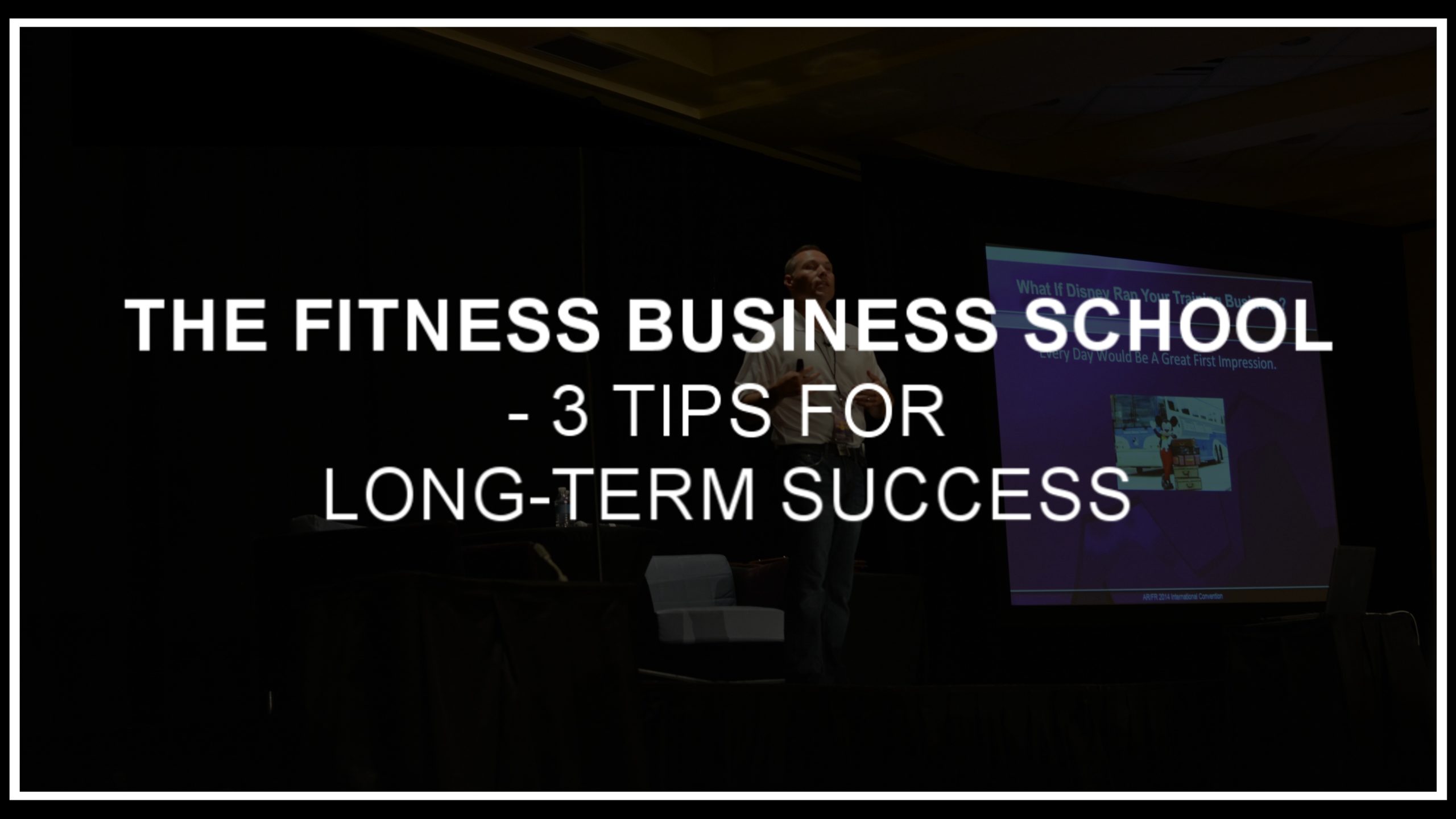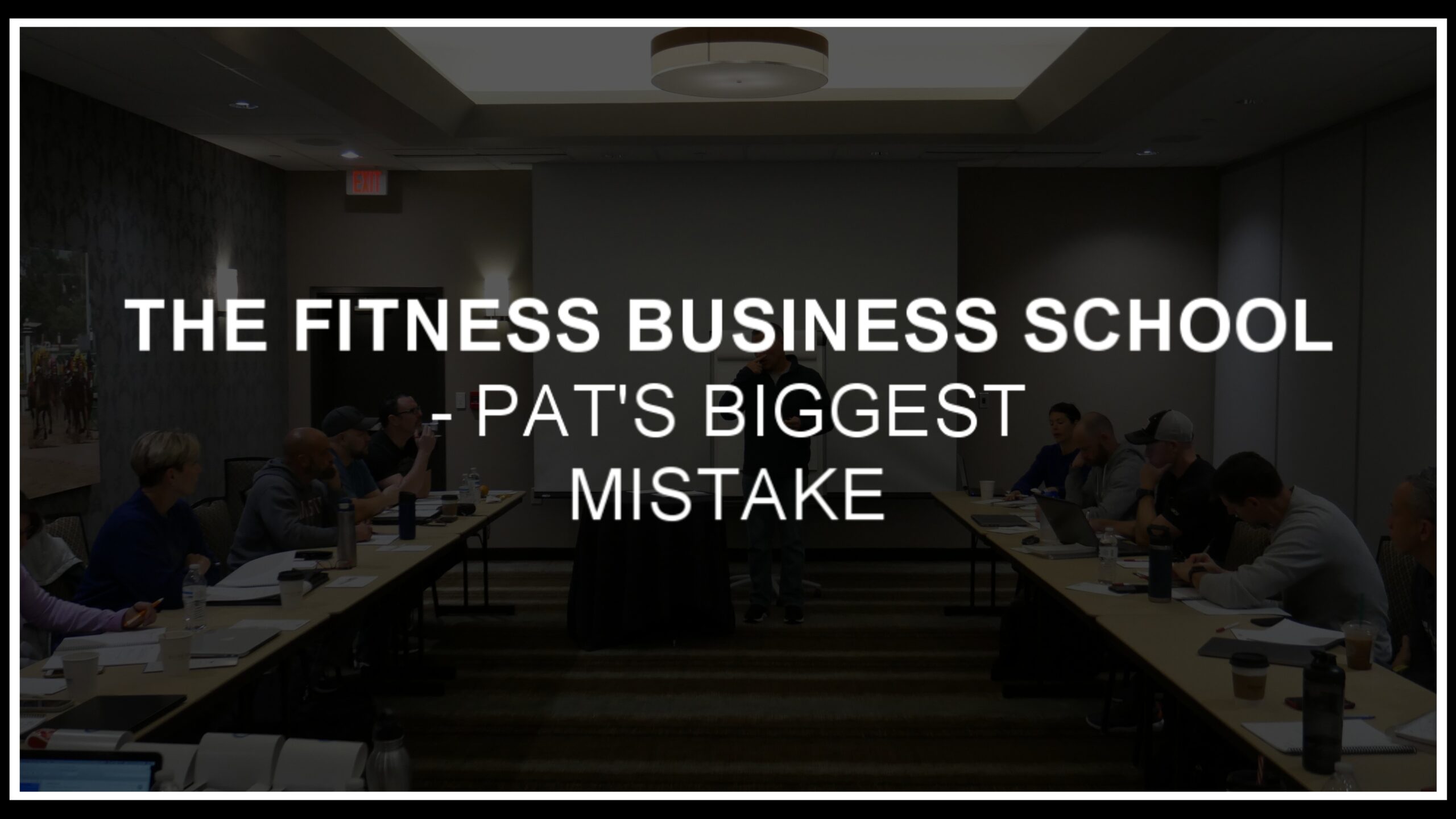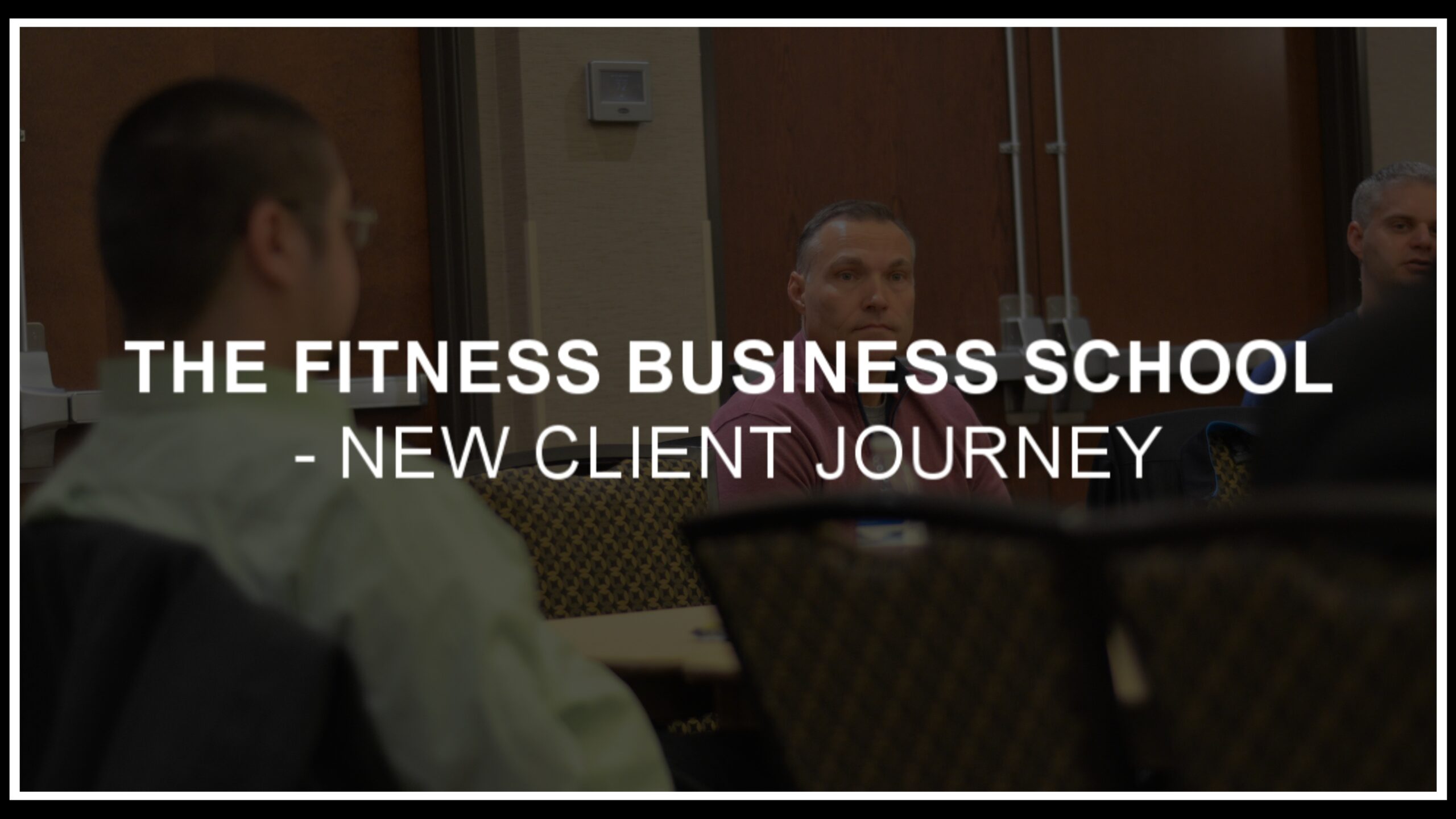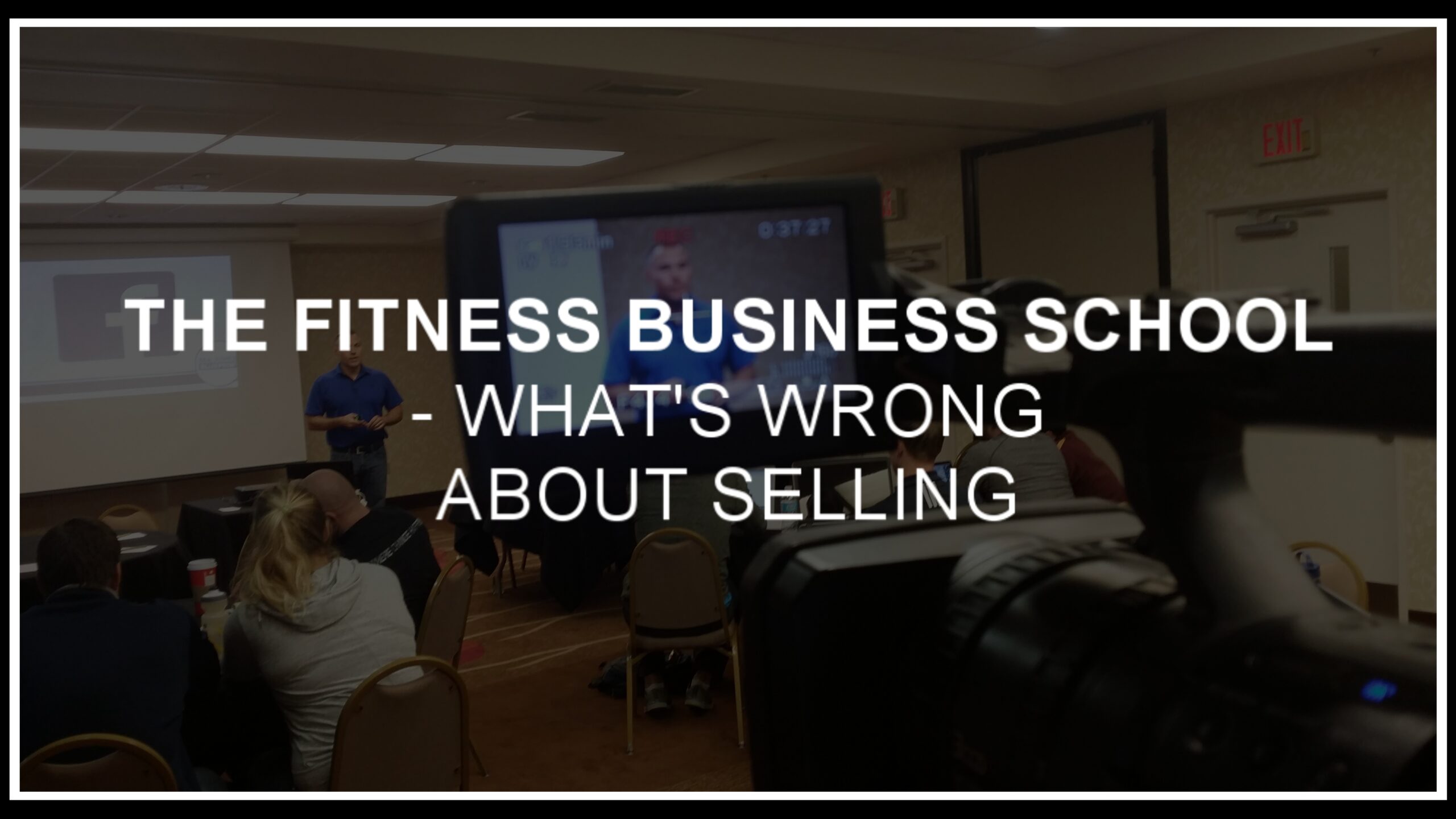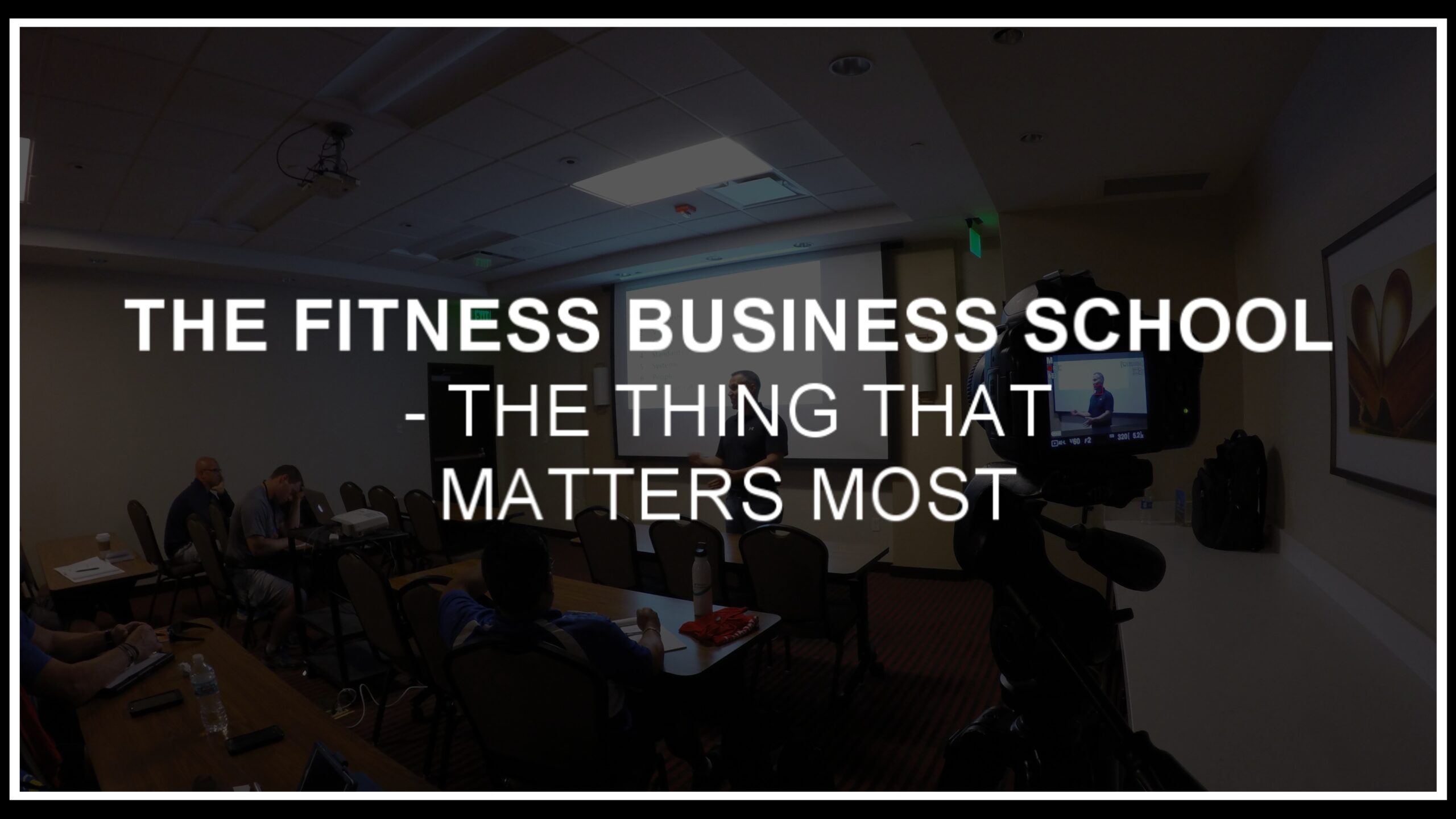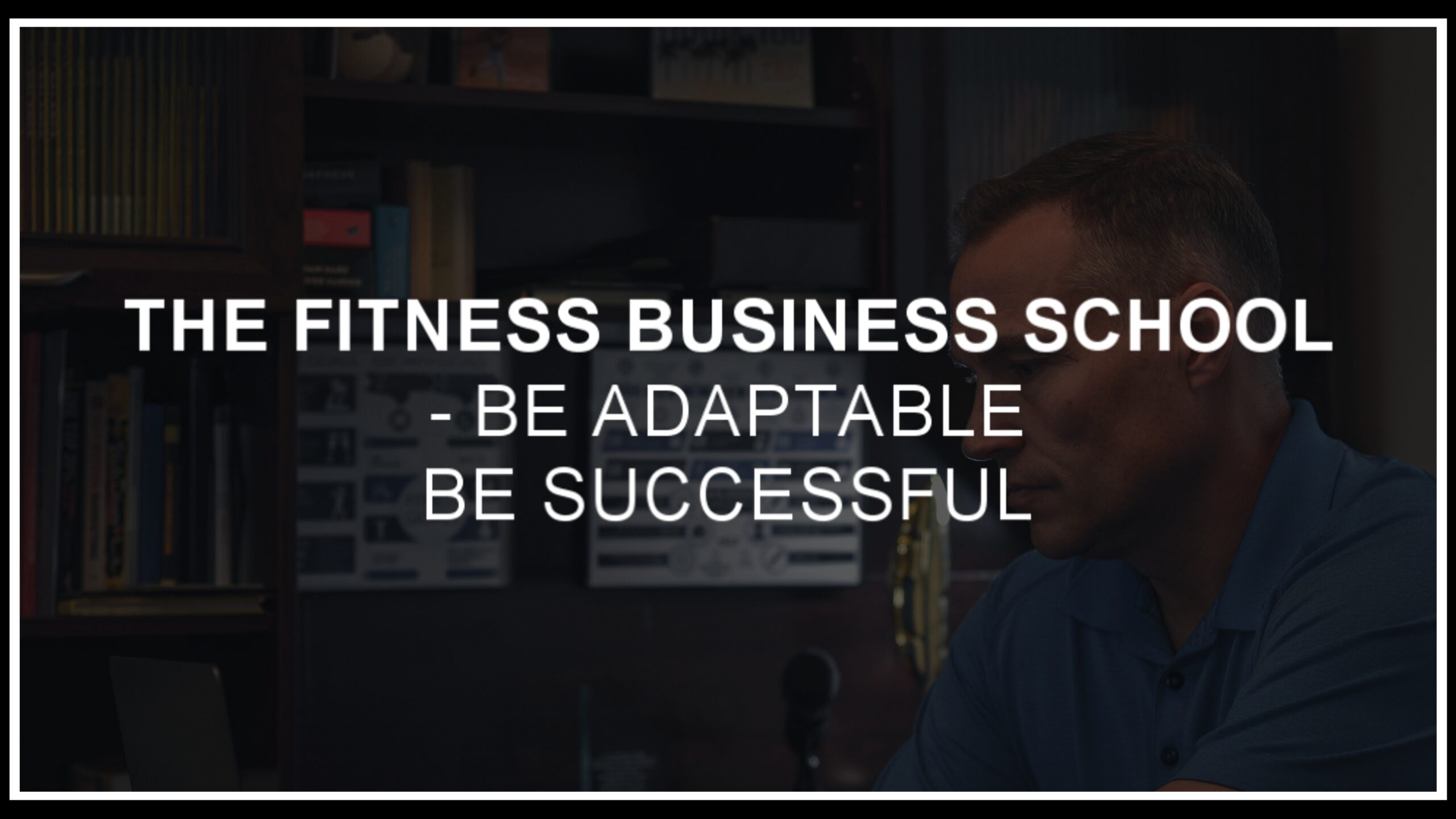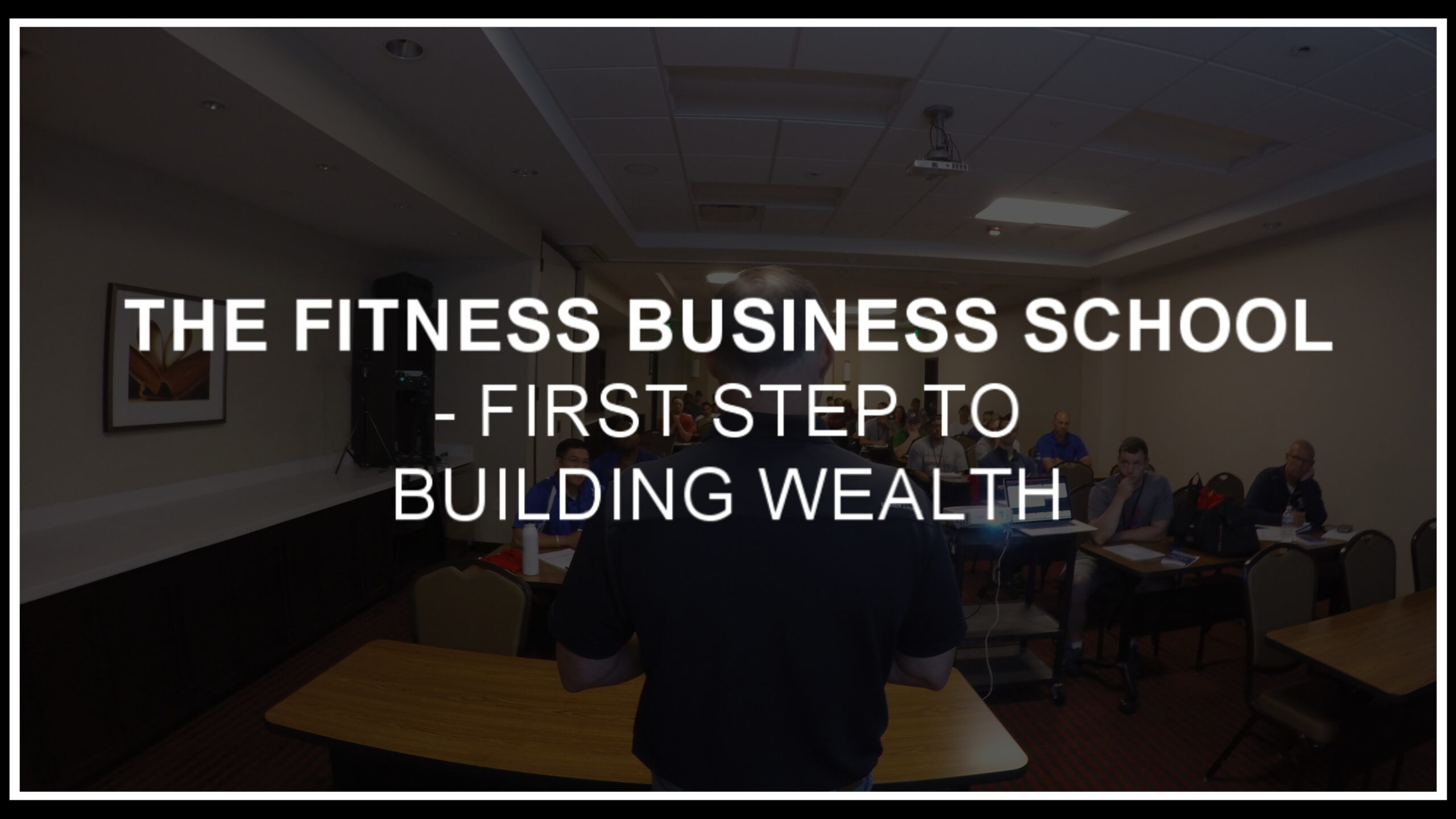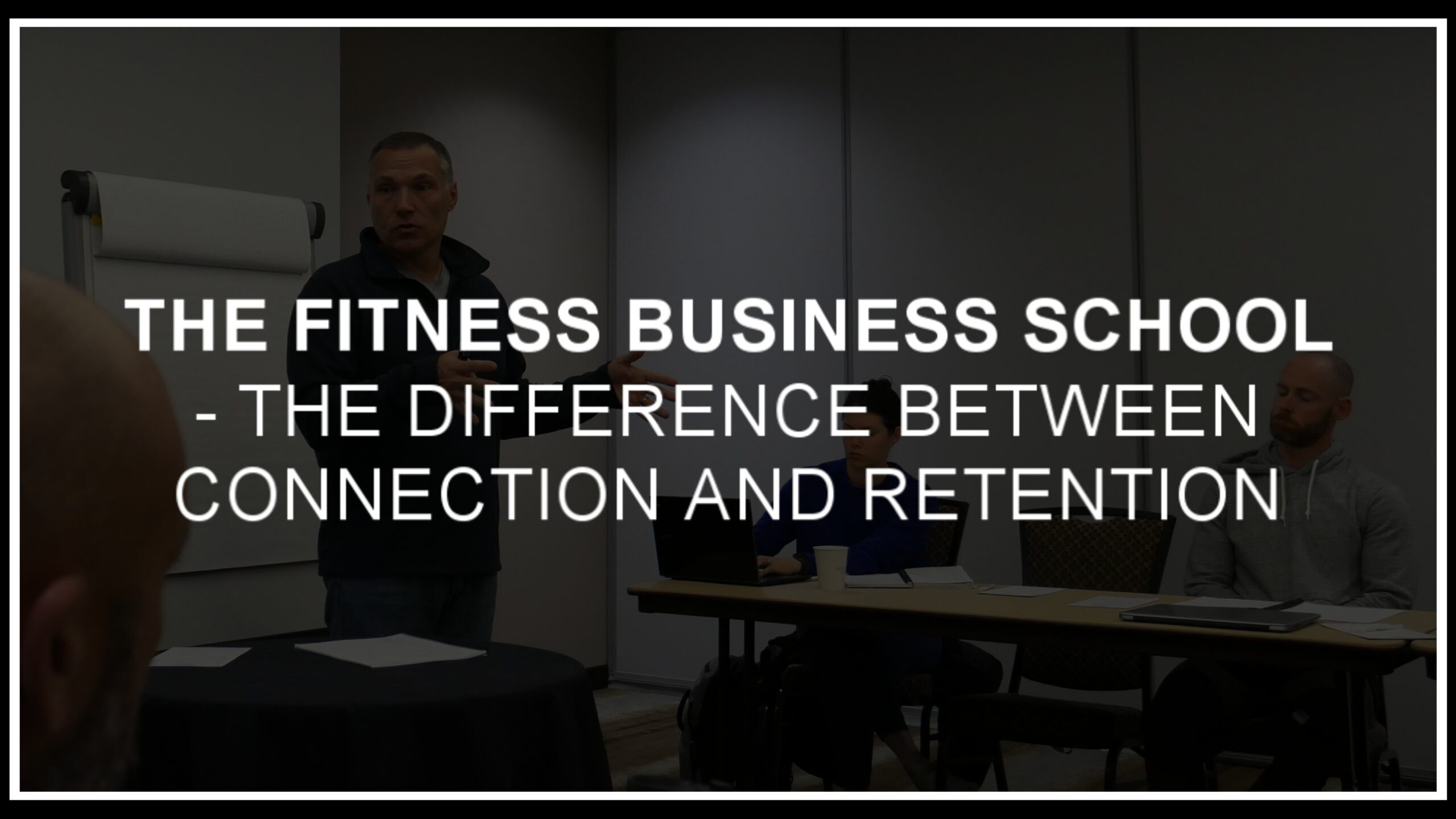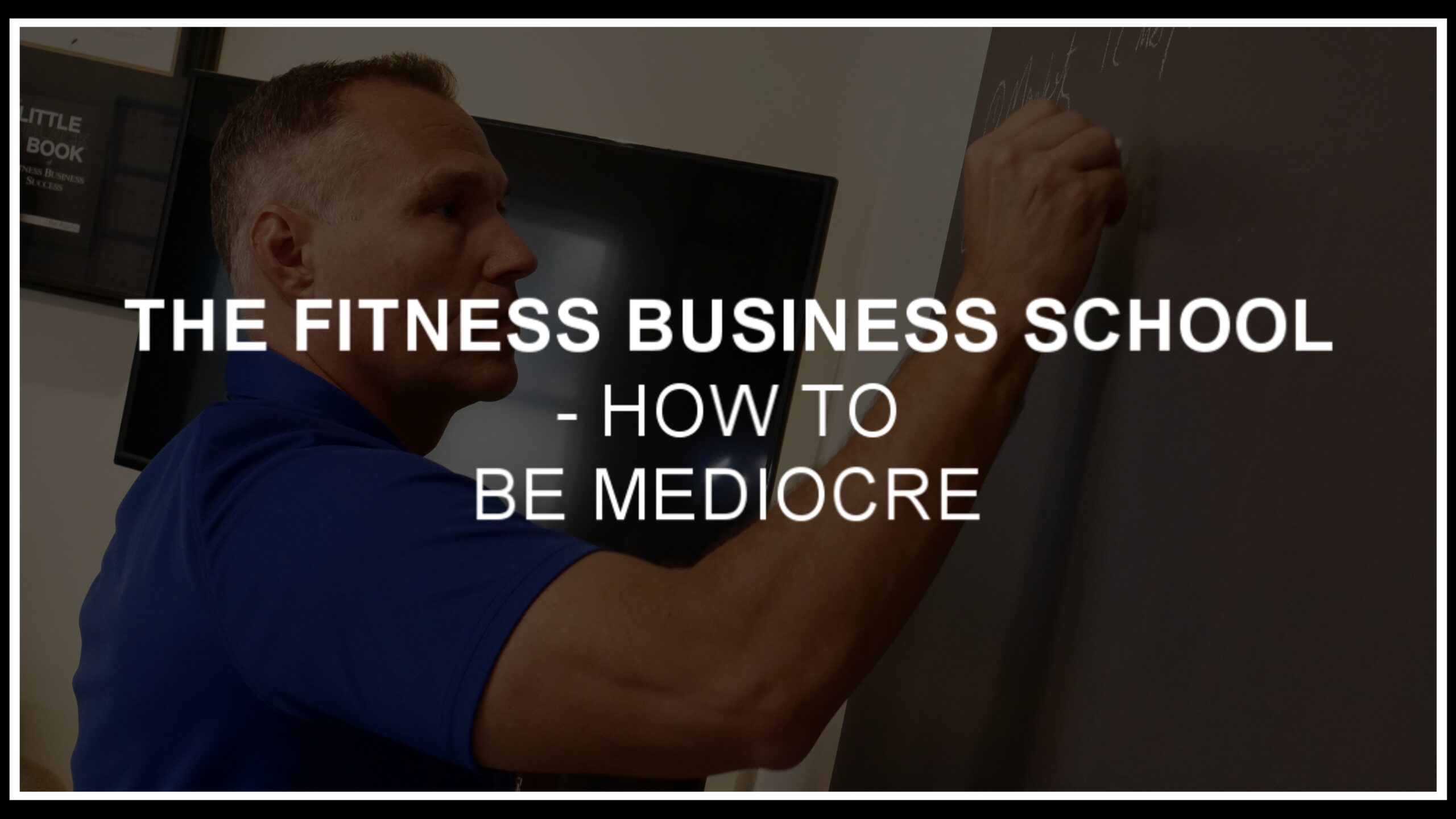Show Notes
- Immediate needs are important, but equally important is the long-term
- You need to be focusing on the long game
- Where would you like to be in 3-5 years?
- Move incrementally in that direction
- Adding 1 client a week adds up over time
- What kind of leader do you need to be to get to your goals?
- What are you doing today to get there?
- Always be planning
- Focus on your areas of strength
- Hire and hand off work that does not fit those areas
P.S. – 6-Weeks of Coaching…Free.
Get a surge of new clients and revenue over the next 6 Weeks with ZERO FEE and no obligation to continue?
If you’re a current business owner who wants to add 50K or more in annual revenue over the next 12 month, you can Test Drive our coaching program for 6 Weeks with no fee or even an obligation to continue as a way to demonstrate how we can help you grow your business.
No strings attached. No obligation. You get our best coaching & tools…and hopefully, you’ll love it enough that you want to keep working together.
Would you be interested in discussing?
If so, email me here with ‘interested’ in subject line and we’ll set up a chat.
Full Transcript
Hey Pat Rigsby here. And in this episode, I want to talk with you about three tips for long-term success. Right now, it’s kind of tough for a lot of people to think long-term, but if you do, it’s gonna be an advantage. So I want to work with you on that in this episode,
Welcome to the fitness business school with Pat Rigsby, the podcast for fitness entrepreneurs who want to make more income, have greater impact, and enjoy more freedom in their ideal business. If you’d like an accelerated route to these goals, email me at [email protected] and put BGA in the subject line and I’ll get you all the details about our business growth accelerator program.
So when I work with clients, there are kind of things that we have to balance. We need to navigate the immediate, the needs that they have right now. How do I get clients in the door? How do I make sure that my business remains profitable? How do I deal with staff turnover or outside forces kind of influencing what I can and can’t do with capacity or online or offline or anything like that. So those are the immediate things we have to address. But one of the things that we try to focus on and helping people craft their ideal business is also thinking about long-term success, thinking about where they want to go, what success looks like to them and really what they want their business to be for them, their clients, their family, and really anybody involved, any stakeholder that is part of what they do. And there are really just three tips I wanted to share with you today in this episode that I think can help. I know they’ve helped me a bunch and they’ve helped my clients as well.
So the first is just understanding that we want to focus on the long game. I know that seems simple. And honestly, it’s pretty much the title of this episode, but the, the idea that we’re thinking about where we want to go three to five years from now, even if five years seems like an eternity away, because things have changed so much in the past year, let alone the past five, you know, understanding where we want to go over the long-term. It’s a little bit like the investing world, right? Where, you know, you, you say, Hey, I want to have this much money at retirement. So what kind of behaviors do I need to have right now to get there? What kind of person do I need to be to move in that direction and go where I need to go in order to be successful?
So when I think about focusing on the long game, I look typically three to five years down the line. I think about what I want from my business personally, I want professionally. And when I say what I want, these aren’t all things for me. But sometimes there are things like the type of impact I want to have the type of client I want to serve. So I make sure I’m doing the right things for the people that, that are willing to trust me, to help them reach their goals. So when we think about the long game, it allows us to make better decisions. Now it allows us to make sure that we’re moving incrementally towards where we want to go, because there is very much like investing a compound effect. If your making solid decisions consistently, if you’re attracting more of the right people, consistently, everything adds up and everything gets magnified over time. And it, it may not seem that way, but let me give you a couple, just really simplistic examples. Like the first would be if you’re really focused on serving a particular type of person and maybe right, right now, it’s not as easy to attract clients is. You’re like still, if you are able to go get one new person that is spot on your target market, your ideal client client today, and then next sweet you get one more. And then the following week, you get another, well, not only over time or is this going to add up right over the course of the year, you’re going to have 50 people that you love to serve, but you’re also going to have a much stronger culture, right? You’re going to have more people who, who are similar, more people who are really lifting one another up, more people that create a better environment for any new person coming in.
So adding one person, that’s a good fit every week or a couple of people every month over time, it just really compounds because it makes it a much better place for the new people coming in. If I look back at the time I was a college baseball coach, we were over a six year span by a couple different metrics, the best hitting team in the country for, well, by all divisions. Now there were higher divisions than us. And obviously if they had a play in our division, that’ll probably done better, but statistically we led the country in hitting over span. So yeah, what we saw though, was if I attract, like if I attracted people that really to hit and they were passionate about that, that craft, if you will developing that skill, instead of, you know, you having one or two people putting in extra work outside of practice to improve as hitters. Now you’ve got half the team out there on a daily basis putting in extra work. And that just becomes part of the culture and other people get involved. So people that may not have been a great hitter when they got to us became a great hitter, are starting to get closer to reaching their potential because of that culture. And that culture is created one player at a time, just like your culture has created one client at a time, bringing them in and then helping to facilitate that culture development. So if we’re thinking about that, like that’s one example of the long game, seeing where we want to go and understanding in an incremental way, how the steps we take today can move in that direction.
But then beyond that, if I want to be a person let’s, let’s say you want to be a person who has a half million dollar year business that pays you, you know $150,000 a year and overall compensation. Well, there are things that you can be doing today, not just in the client acquisition side of things to move towards that. Like what kind of person do you need? What kind of skills, tools and knowledge do you need to have to be a business owner of a half million dollar business? And how is that different then being the owner of a a hundred thousand dollar business? What kind of things do you need? No. I mean, there, I I’ve been through every type of business. It seems in this industry, I’ve had small, offline businesses in small towns and I’ve had big franchise organizations. I’ve dealt with HR type of concerns with big operations. And then I’ve been solo printer in other situations. And all these different situations require different experiences, different skills, different knowledge, and honestly your becoming a different person to successfully navigate that place that you want to go.
So if you think about where you want to go, what are you doing today to put you in a position to be successful there when it comes to not just the tactical side, like, okay, we got to get clients or we need a bigger space, but what are you doing to become the person who’s going to thrive in that environment? And that’s maybe a way of thinking that a lot of people don’t approach, like if I want to be a great business owner that employs other people and develops a great culture, well, what am I doing to make myself that person, what am I adding to my toolbox to put myself in that position? So focusing on the long game is something that I think that all of us can do to be a little bit more successful. But it also something that I know keeps me motivated, keeps me inspired, keeps me focused when maybe the short term isn’t exactly what you want it to be. All right. So that’s number one.
Number two, always be planning. And you know, I’ve talked about this in other episodes. Marketing is a 365 day a year thing. It is a constant component of your business, attracting clients is constant. So what are you, are you doing to always plant? Well, honestly, you’re always connecting with new people and you’re always building the relationships that you have. And if you, you are connecting with new people on a daily basis, and that’s just kind of part of this planting concept. And if you’re putting out good information, if you’re answering the questions your target market has, if you are answering the questions they should have, if you’re giving them things that make their day better, their life better, then over time, there’s going to be a cumulative benefit to that in the short term, it may not feel that way, right? Today’s email that goes out may not yield any new business, but if you’re consistent and let’s say you’re doing the three time a week emails that we recommend the clients, well, that’s 156 touch points over the course of a year. There’s no chance that that won’t yield some benefits in the macro. So always be planning, always be moving relationships in the direction you want them to go and creating new relationships that you can potentially move in the direction you want to go.
And then finally, maybe for me, the thing that has been the best mindset kind of shift for me since I’ve been a business owner, is this idea of focusing on your strengths there. You know, I think all of us at certain points, we get caught up in what our weaknesses are. They make us insecure. They they, they can become real limiting factors. They are things that, that almost kind of pull back the curtain on us and show us for the like, show us as the worst version who we are. I know for me, early on in my business life, the, the kind of finance side of things, whether it be the details of accounting or, you know, any of those sorts of things that, you know, we’re, we’re, we’re really back off as detail oriented pieces of being a business owner. Well, they were not my strengths. And honestly, I kind of buried my head in the sand about them. I wasn’t, you know, the guy who was excited to go see the accountant because it made it almost made me feel like, okay, I’m going to see a doctor or something like that. You know, I wasn’t confident, and I didn’t see this as, Hey, you know what? I’ve got my strengths, they have theirs, which is how I would view it now. I, to be honest, probably cost myself millions of dollars in, in personal income by taking on, you know, a business partner to fill some of those, those roles, right. Because it was just not an area of confidence for me. And it was like, okay, well, somebody else will take this and I can play to my strengths. Then I can, you know, what kind of, I abdicate myself from those responsibilities.
So in my mind, I had to make a shift. I had to understand that all, all great business owners that I know have identified what their unique abilities are and they, they focus on those really top performers in any field or that way. I mean, if you look at a professional athlete, that’s basically what they are, right? Their strengths are not only a strength to be really proficient in a specific game, but it usually in a specific position in a specific game. And if they, you know, you could have the best quarterback in football, but if you said, okay, go be an offensive lineman that failed miserably. And we have to understand that there are certain things that we’re best at, and we can hire out the rest. And not only really are we able to spend more of our time doing the things that, that are really within our unique ability, the things that we’re great about or great at the things that we are passionate about or excited to do, and, and most excited about getting better at which may be as important as any of it. If you’re really interested in something you’re going to get better at it, even if you’re not great at it, you’re, you’re going to be more likely to be willing to pursue greatness in that area.
But we’re also handing off something to somebody else and saying, you know what, I want this for you too. I want you to be able to do the things that you’re great at. I mean, I’ve got Matt Sizemore on my team who I don’t think really enjoys doing the things that I do in business, but the things that he is really great at in business are, are kind of the opposite of mine. And so I can feed his unique ability. I can feed his strengths and he can get personal and professional fulfillment out of that. Well, I’m doing the same in my business. So when you’re thinking about your long-term success, there are three real simple concepts that I think often get overlooked when people get caught up in the tactical pieces of what they’re doing, focusing on the long game, always planting and playing to your strengths. If you follow those three tips, not only are you going to find more fulfillment in what you’re doing, but you’re also going to see more personal and professional success.
Thanks for listening to this episode of The Fitness Business School. And before you go, I have a quick announcement. When I first connect with a fitness business owner, they almost always ask me, “How can I get more leads or how can I get more clients?” Well, I have an exclusive offer for you and it’s going to help you do just that. As a listener of this show, you can test drive Fitness Lead Academy for six full weeks for just a dollar. Fitness Lead Academy is a one of a kind program where you get done-for-you marketing tools and coaching to attract more qualified prospects and convert them into paying clients. Imagine having three marketing emails written for you each and every week for easy-to-deploy promotions provided to you that are proven to convert and they’re ready to use and proven ads and social media posts given to you each and every month as well. Plus you have access to three weekly live video coaching sessions to help you with everything from dialing in your brand to navigating things like building funnels and getting ads approved. You get all of this and more when you join Fitness Lead Academy. And to prove that FLA can serve you as your virtual marketing department and not only save you plenty of time, but also consistently bring you more leads and clients, you can get access to the entire coaching program for six full weeks. Again, for just $1. If it delivers for you in the way that I expect it will, you can continue on for just $199 a month. So basically, just one additional client each month and you’re ROI positive. And I’m sure that if you apply what we give you, you’re going to get more than just one additional client each month. And you’re going to likely save at least 10 hours a month to take advantage of this special offer. Just go to TestDriveFLA.com to try it out for six full weeks. If it’s not what you’re looking for, you can cancel it any time.
Just go to TestDriveFLA.com to get started.


